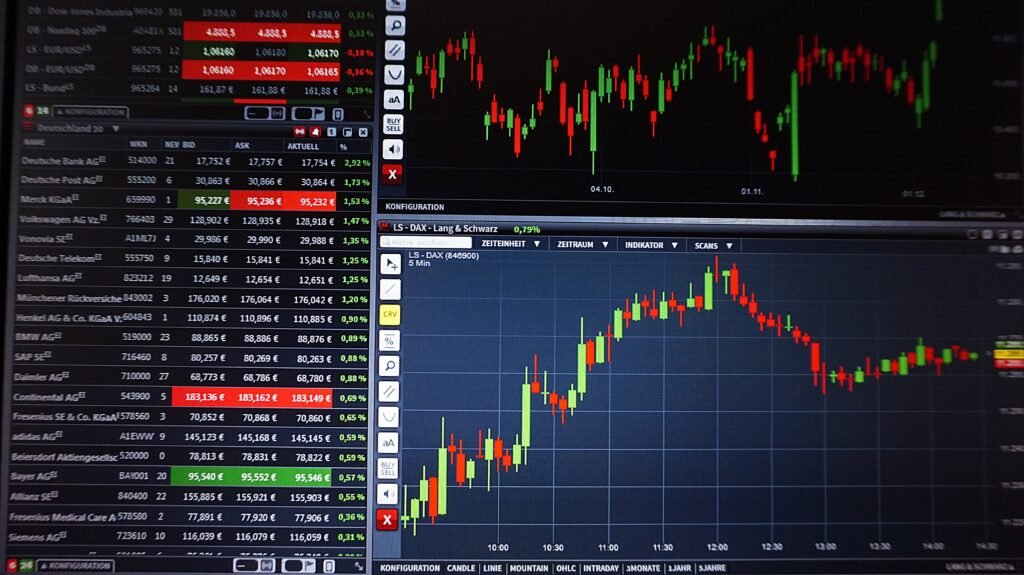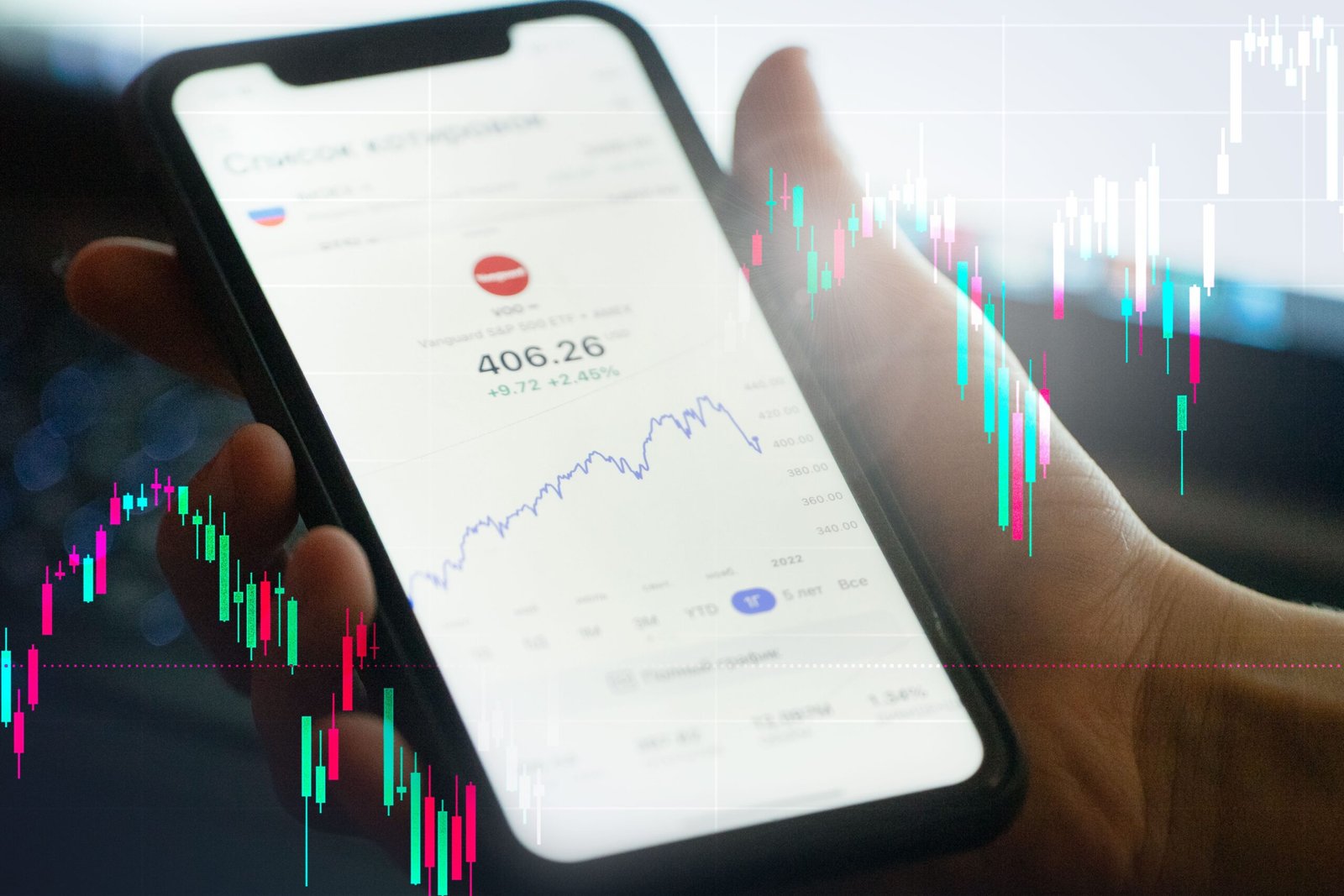Trading can be a lucrative endeavor if approached with the proper strategies and mindset. Whether you’re new to the world of trading or a seasoned trader looking for new ideas, there are numerous ways to profit from the financial markets. Here are ten remarkable methods to earn money through trading.
10 Remarkable Ways to Earn Money from Trading
1. Day Trading
Day trading involves buying and selling of securities within the same trading day. Traders capitalize on small price movements and typically close all of positions before the market closes. Successful day trading requires strong analytical skills, quick decision-making, and effective risk management.
Key Tips:
- Use technical analysis tools.
- Stay updated with market news.
- Develop a solid trading plan.
2. Swing Trading
Swing trading focuses on capturing short-to-medium-term gains over a few days to several weeks. Traders identify price swings and trends to enter and exit positions at optimal times. This strategy is less time-intensive than day trading but still requires a keen eye for market movements.
Key Tips:
- Identify and follow market trends.
- Use stop-loss orders to manage risk.
- Combine technical and fundamental analysis.

3. Position Trading
Position trading is a long-term strategy adopted by traders where traders hold positions for weeks, months, or even years. This approach relies on fundamental analysis to identify securities with strong growth potential. Position traders often ride out short-term market volatility, focusing on the overall trend.
Key Tips:
- Perform in-depth fundamental analysis.
- Diversify your portfolio.
- Be patient and avoid emotional trading.
4. Scalping
Scalping is a high-frequency trading strategy that aims to profit from the small price changes. Scalpers execute dozens or hundreds of trades within a single day, holding vast positions for mere seconds or minutes. This method requires discipline, speed, and advanced trading software.
Key Tips:
- Use low-latency trading platforms.
- Focus on liquid markets.
- Maintain strict risk management.
5. Algorithmic Trading
Algorithmic trading uses automated programs to execute trades based on predefined criteria. These algorithms can analyze market data and execute trades faster and more accurately than human traders. This strategy is ideal for those with programming skills and a deep understanding of market dynamics.
Key Tips:
- Develop and backtest algorithms thoroughly.
- Continuously monitor and optimize your algorithms.
- Ensure compliance with trading regulations.
6. Options Trading
Options trading involves buying and selling options contracts, which give the right (but not the obligation) to buy or sell an asset at a predetermined price. Options can be used for speculation or hedging, offering flexibility and the potential for significant profits.
Key Tips:
- Understand the different types of options (calls and puts).
- Use options strategies like spreads and straddles.
- Be aware of the risks and potential for loss.
7. Forex Trading
Forex trading involves buying and selling of currencies in the global foreign exchange market. Traders profit from fluctuations in currency exchange rates. The forex market is the largest and most liquid financial market, offering numerous opportunities for profit.
Key Tips:
- Stay informed about global economic events.
- Use leverage wisely to maximize gains.
- Practice on a demo account before trading with the legit money.
8. Cryptocurrency Trading
Cryptocurrency trading involves buying and selling digital currencies like Bitcoin, Ethereum, and Litecoin and few others. The crypto market is known for its high volatility, presenting both opportunities and risks for traders.
Key Tips:
- Research and understand the technology behind cryptocurrencies.
- Use reputable exchanges and secure your assets.
- Diversify your crypto portfolio.
9. Commodities Trading
Commodities trading involves buying and selling physical goods like gold, oil, and agricultural products. Traders can profit from price movements in these markets, often driven by supply and demand factors, geopolitical events, and economic data.
Key Tips:
- Understand the factors affecting commodity prices.
- Use futures and options contracts to manage risk.
- Stay informed about global market trends.
10. Social Trading
Social trading allows traders to copy the strategies and trades of experienced traders. Platforms like eToro offer social trading features where users can follow and replicate the trades of top performers, making it easier for beginners to learn and profit.
Key Tips:
- Choose reputable social trading platforms.
- Carefully select traders to follow based on their performance and risk profile.
- Diversify your copied trades to finish risk.
Conclusion
Trading offers numerous ways to earn money, but it requires knowledge, discipline, and a well-thought-out strategy. Whether you’re interested in day trading, algorithmic trading, or exploring the world of cryptocurrencies, there’s a trading method to suit your style and goals. Always remember to manage your risk, stay informed, and continuously improve your skills to succeed in the dynamic world of trading.
FAQ
1. What is the best way to start trading if I am a beginner?
If you’re new to trading, consider beginning with a demo account to practice without risking real money. Learn the basics of trading, understand different market types, and familiarize yourself with various trading strategies. Education is key, so read books, take courses, and follow market news to build a strong foundation.
2. How much capital do I need to start trading?
The required capital varies depending on the type of trading you choose. Day trading and swing trading might require a higher initial investment due to the need for margin accounts, while forex and cryptocurrency trading often have lower entry barriers. It’s essential to start with an amount you can afford to lose and gradually increase your investment as you gain experience.
3. What are the main risks involved in trading?
Trading involves too many risks, including market risk, liquidity risk, and leverage risk. Prices can be of unpredictably, leading to potential losses. It’s crucial to implement risk management strategies, such as using stop-loss orders, diversifying your portfolio, and avoiding excessive leverage.
4. How can I improve my trading skills?
Improving your trading skills requires continuous learning and practice. Follow market news, study different trading strategies, and analyze your past trades to identify mistakes and areas for improvement. Joining trading communities and forums can also provide valuable insights and support.
5. What tools and software do I need for trading?
The tools and software you need depend on your chosen trading method. Common tools include trading platforms like MetaTrader, charting software for technical analysis, and news feeds for staying updated on market events. Algorithmic traders may need programming software to develop and backtest trading algorithms.
6. Can I trade part-time while having a full-time job?
Yes, many traders successfully trade part-time while maintaining a full-time job. Swing trading and position trading are often suitable for part-time traders, as they require less frequent monitoring compared to day trading. Time management and having a clear trading plan are crucial for balancing both activities.
7. How do I choose which markets to trade in?
Choosing a market to trade in depends on your interests, risk tolerance, and knowledge. Some traders prefer the high volatility of cryptocurrencies, while others might opt for the stability of stocks or commodities. Research different markets, understand their dynamics, and choose one that aligns with your trading goals and expertise.
8. What is the role of technical and fundamental analysis in trading?
Technical analysis involves studying of price charts and using indicators to predict future price movements. Fundamental analysis, on the other hand, involves evaluating the underlying factors affecting an asset’s value, such as financial statements, economic data, and industry trends. Both methods can be used together to make informed trading decisions.
9. How important is emotional control in trading?
Emotional control is vital in trading, as decisions driven by fear or greed can lead to significant losses. Developing a disciplined approach, sticking to your trading plan, and using strategies like setting stop-loss orders can help manage emotions and maintain objectivity.
10. Can I rely solely on social trading to make profits?
While social trading allows you to copy the trades of experienced traders, it’s important to conduct your own research and not rely solely on others. Diversify your copied trades, monitor their performance, and be aware of the risks involved. Social trading can be a helpful learning tool but should be complemented with your own analysis and strategy.
11. What is leverage and how does it work in trading?
Leverage allows the traders to control a larger position with a smaller amount of capital. While leverage can amplify profits, it also increases the potential for losses. It’s crucial to understand how leverage works and use it cautiously, implementing proper risk management techniques to protect your capital.
12. How do I stay updated with market news and trends?
Staying updated with market news and trends is essential for successful trading. Follow financial news websites, subscribe to market analysis newsletters, and use news feeds integrated into your trading platform. Additionally, joining trading communities and forums can provide real-time insights and updates from fellow traders.
13. Is trading suitable for everyone?
Trading is not suitable for everyone, as it requires a certain level of risk tolerance, discipline, and commitment. Before starting, assess your financial situation, goals, and personality to determine if trading aligns with your lifestyle and objectives. Consider seeking best advice from a financial advisor if you’re unsure.

